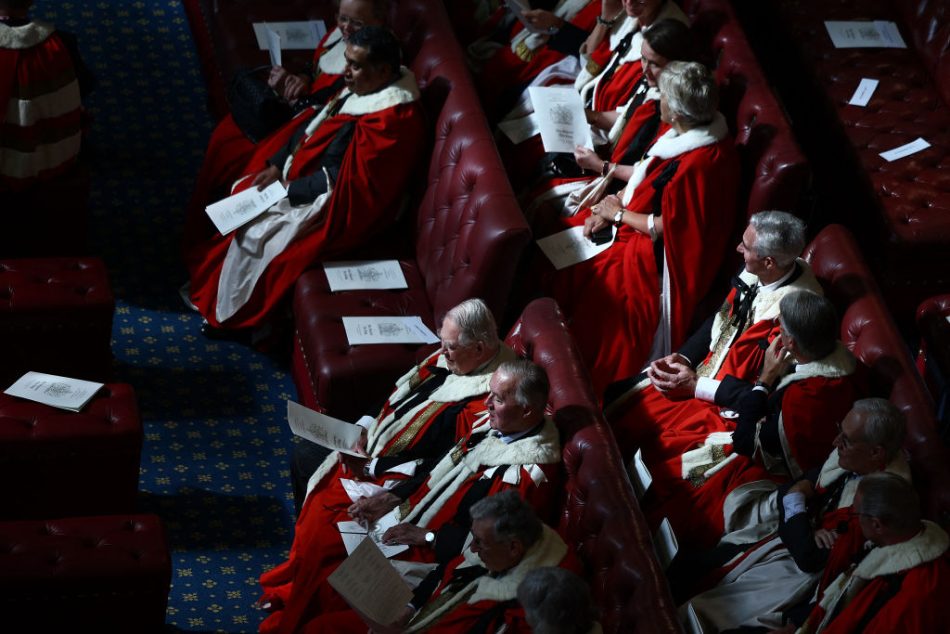After a two-year impasse, the future of the Daily Telegraph could be resolved shortly. A £500m deal has been struck for US firm Redbird Capital to take control of the Telegraph Media Group, with state-backed Abu Dhabi investment vehicle IMI among investors. But a fresh challenge has arisen in the House of Lords. Peers are threatening to block minister’s efforts to change the law to give foreign companies a greater stake in British media outfits – up from the existing five per cent to 15 cent. This is a necessary legal change to allow the Telegraph sale to go ahead.
A ‘fatal motion’ will be held in the Lords on Tuesday; if passed, it would kill the government’s plans. It is a device seldom wielded by peers, having been last used in 2012. But opponents are growing increasingly confident that the ‘fatal motion’ could succeed. Two separate fronts have opened up in the Lords. The first is led by Liberal Democrat peer Lord Fox, who tabled the motion. Lib Dem whips are understood to be pulling out all the stops to maximise turnout, including facilitating the attendance of their older peers who do not vote regularly. Their argument is simple: the power of the free press should not be sold to overseas companies susceptible to foreign government influence.
The hope is that a sufficient number of Tory and Crossbench peers will vote it down.
The second front is led by the cross-party Inter Parliamentary Alliance on China (Ipac) and its supporters like Lord Alton. Their focus is more directly on the Telegraph sale. Sir Iain Duncan Smith has written to Lisa Nandy, the Culture Secretary, arguing that a Foreign State Intervention Notice (FSIN) be issued in this case. A legal opinion by Tom Cross KC details alleged links between Redbird Capital’s chairman John Thornton and the Chinese state, including his advisory roles on Beijing’s sovereign wealth fund. Sir Iain argues that this is compelling evidence for Nandy to ‘adhere to your statutory duty and issue a FSIN without delay.’
Both groups are seeking to influence their colleagues across the House. Given the government’s lack of a majority, the hope is that a sufficient number of Tory and Crossbench peers will vote it down. Tory whips are expected to vote against the fatal motion, though their colleagues will not be whipped to follow suit. Lord Forsyth, the respected chair of the Association of Conservative Peers, is expected to vote for the motion; others will likely follow his lead. One opponent notes that the Conservatives voted for fatal motions that successfully halted government legislation when they were last in opposition before 2010.
A separate ‘motion of regret’ has been put down by Baroness Stowell, the former Leader of the House. Some supporters of the fatal motion fear it could frustrate their efforts, with wavering peers potentially voting for Stowell’s amendment rather than Fox’s. The government will argue that a statutory instrument can close the loophole whereby multiple states can each own 15 per cent of any publication. But their critics will counter that this is insufficient and will not stop the Telegraph deal from going ahead.







Comments